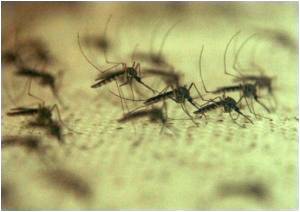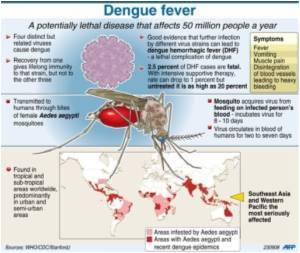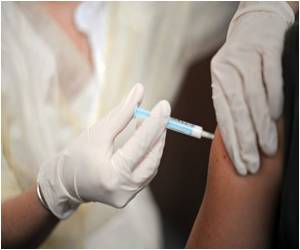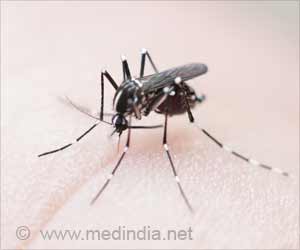To prevent mosquitoes from transmitting dengue virus to humans, can mosquitos be injected with a vaccine? That's what Australian scientists are working on.

The Eliminate Dengue Research Programme is a not-for-profit international collaboration active in Australia, Vietnam, Indonesia, China, Singapore, Colombia and Brazil.
The scientists have transferred the Wolbachia bacteria from the fruit fly into mosquitoes and found that when it is present in the mosquitos, it reduces their ability to transmit the dengue virus.
In a nutshell, scientists have vaccinated mosquitoes against dengue, as a result of which they would not be able to transmit it to humans.
"Wolbachia acts like a vaccine for the mosquito by blocking dengue virus transmission by mosquitoes and thereby preventing human infection with dengue," programme manager Peter Ryan told IANS.
The programme is managed by Melbourne's Monash University.
Advertisement
"We have demonstrated that Wolbachia's presence in mosquitoes reduces their ability to transmit other viruses such as chikungunya and yellow fever as well as parasites that cause malaria," he said.
Advertisement
He said such an experiment was carried out in Australia's Cairn area that has 1,000 houses in 2011.
"In the last two years, we found that about 80 percent of mosquitoes cannot transmit dengue. We cannot however say if the number of dengue cases in humans has come down, as we need a bigger sample size," Ryan said.
Ryan, who was in New Delhi to attend a biotechnology conference, said they are ready to share the technology for free so that countries can innovate and develop it according to their biological and ecological conditions.
"Dengue is a big problem and many people die of it. We want to provide a cost-effective and affordable way to countries to deal with the menace," he said.
The scientists believe they have found a practical and environmentally sensitive approach to supressing dengue with the potential for area-wide implementation at a low cost.
"The method is also compatible with existing control approaches like insecticide application and should also augment the effectiveness of a future vaccine once developed," Ryan added.
The programme has already been tied up with the Vietnamese government for conducting trials in the country in the next few months.
Denying any risk was associated with the release of the Wolbachia bacteria, Ryan said: "It is safe for humans, animals and the environment. In each project country we seek approval from the community before we carry out our tests."
India recorded over 37,000 dengue cases, causing 227 deaths in 2012, the highest number in a year so far, according to the health ministry.
"The percentage increase in number of cases and deaths between 2011 and 2012 is approximately 97 percent and 34 percent respectively," Minister of State for Health Abu Haseem Khan Choudhary said recently.
Source-IANS













